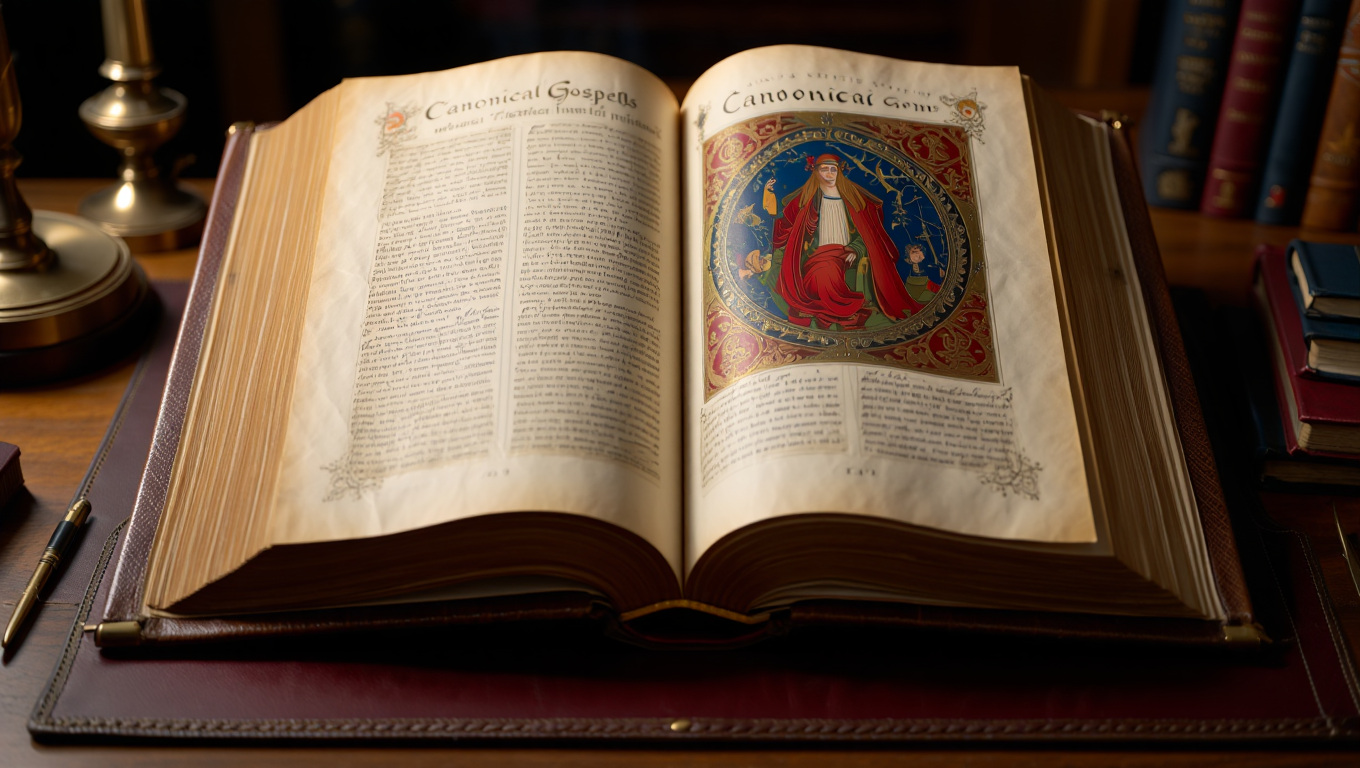Rumi, a thirteenth-century Persian poet, is often described as a mystic and enlightened man but is less frequently recognized as a Muslim. His most famous work, the “Masnavi,” draws heavily from Islamic scripture and moral lessons from the Quran. However, many translations of Rumi’s works in the United States have removed references to Islam, leading to a disparity between his writings and the religious context in which they were created.
Key Takeaways:
- Rumi’s writings are deeply influenced by Islamic teachings and draw extensively from the Quran.
- Translations of Rumi’s works in the West often remove references to Islam, distorting the original meaning and intent of his poetry.
- The erasure of Islam from Rumi’s poetry perpetuates orientalist stereotypes and cultural theft.
- The Rumi Was Muslim campaign aims to raise awareness about the misleading translations and attributes of Rumi’s work.
- Understanding and appreciating Rumi’s Islamic identity is crucial to fully comprehend his poetry and teachings.
The Erasure of Islam from Rumi’s Poetry
Rumi, renowned as a thirteenth-century Persian poet and mystic, holds significant influence on Islamic literature. However, a remarkable divergence can be observed between Rumi’s interpretation of Islam and the teachings found in Islamic holy books. Starting from the Victorian period, translators in the West began separating Rumi’s mystical poetry from its Islamic roots due to a lack of understanding and cultural disconnect with the religion.
Regrettably, this erasure of Islam from Rumi’s poetry perpetuates orientalist stereotypes and cultural theft. Rumi’s works are deeply rooted in Islamic teachings, drawing extensively from the Quran to convey moral lessons and spiritual wisdom. Stripping away these references distorts the original meaning and intent of his writings, presenting a disembodied version of Rumi’s work that lacks the religious and cultural context in which it was created.
By examining the divergence between Rumi’s writings and Islamic scriptures, we can shed light on the importance of recognizing and preserving the Islamic influence within his poetry. This understanding is crucial for appreciating the depth of Rumi’s teachings and their interconnectedness with Islamic theology. It is through an exploration of Rumi’s interpretation of Islam that we can truly grasp the profound impact he has had on Islamic literature and spiritual thought.
Rumi’s Interpretation of Islam in Contrast to Islamic Holy Books
To better understand the erasure of Islam from Rumi’s poetry, it is important to delve into the disparities between his writings and the teachings found in Islamic holy books. Rumi’s interpretation of Islam is not detached from these sacred texts; rather, his poetry serves as a conduit for expressing the teachings and principles outlined in the Quran.
| Rumi’s Poetry | Islamic Holy Books |
|---|---|
| Emphasizes the universal message of love, unity, and spiritual transformation. | Emphasizes the importance of faith, prayer, and righteous actions in attaining spiritual growth. |
| Uses metaphors and symbolism to convey the experience of divine love and unity. | Provides guidance on moral conduct, social justice, and the nature of God. |
| Explores the human journey towards self-realization and enlightenment. | Prescribes the path to salvation and the fulfillment of religious obligations. |
The table above highlights some of the contrasting aspects between Rumi’s poetry and Islamic holy books. While Rumi’s writings beautifully capture the essence of spirituality and the quest for self-discovery, it is important to view them within the context of Islamic teachings. By acknowledging and appreciating the Islamic foundation of his poetry, we can honor Rumi’s contribution to Islamic literature and avoid diluting his work through cultural misappropriation.

Recognizing the erasure of Islam from Rumi’s poetry compels us to reassess our approach to his works. By embracing the Islamic context in which Rumi’s poetry is firmly rooted, we can come to a deeper understanding of his teachings and their relevance within the realm of Islamic spirituality.
Rumi Was Muslim Campaign
The Rumi Was Muslim campaign is an important movement that seeks to address the issue of inaccurately translated and wrongfully attributed works related to Rumi. It aims to raise awareness about Rumi’s Islamic identity and provide accurate translations of his poems that retain their original context. By promoting academic accuracy and accessibility, the campaign aims to bridge the gap between misinterpreted translations and the true essence of Rumi’s work.
One of the primary goals of the Rumi Was Muslim campaign is to rectify the misleading quotes attributed to Rumi. Over the years, many quotes have been falsely attributed to Rumi, leading to misconceptions about his teachings and beliefs. The campaign aims to address these inaccuracies and provide a more accurate understanding of Rumi’s Islamic identity.
Accurate translations of Rumi’s poems are another key focus of the campaign. Translating poetry is a complex task, and misinterpretations can easily occur, leading to a loss of the original meaning and intent. The Rumi Was Muslim campaign works diligently to ensure that Rumi’s poems are translated with precision, taking into account the Islamic context in which they were written.
The Importance of Raising Awareness
Raising awareness about Rumi’s Islamic identity is crucial in dispelling misconceptions and promoting a more accurate understanding of his teachings. By highlighting the profound influence of Islamic scripture on Rumi’s works, the campaign aims to showcase the rich cultural and religious context in which his poetry was created.
Through educational initiatives, events, and online resources, the Rumi Was Muslim campaign empowers individuals to explore Rumi’s poetry with a deeper appreciation for its Islamic roots. By providing accurate translations and dispelling misleading quotes, the campaign seeks to honor Rumi’s legacy as a Muslim poet and mystic.
The Journey towards Authenticity
By embracing the Rumi Was Muslim campaign, individuals can actively contribute to the journey towards authenticity in understanding Rumi’s works. Through a commitment to accurate translations, awareness-raising, and preserving the Islamic context of his poetry, we can ensure that Rumi’s words continue to inspire and enlighten future generations.
Rumi’s Islamic Influences
Rumi’s poetry is deeply rooted in Islamic teachings, particularly the Quran. His profound connection with nature and the Quranic verses is evident throughout his works. Rumi’s love for the Prophet Muhammad is also a significant aspect of his poetry, as he draws inspiration from the prophet’s life and teachings to explore mystical secrets and spiritual journeys.
Rumi’s Teachings Based on the Quran
In his poetry, Rumi often references the Quran as a source of spiritual guidance and wisdom. He incorporates Quranic verses into his metaphors and figurative language to convey the experience of divine love and unity. By infusing his teachings with Islamic scripture, Rumi encourages his readers to seek a deeper understanding of Islam and its teachings.
Rumi’s Connection with Nature and the Quran
Rumi sees the natural world as a reflection of divine beauty and utilizes it as a metaphor for spiritual growth. He frequently draws parallels between the Quranic descriptions of nature and the human soul, highlighting the interconnectedness between the physical and spiritual realms. Through his poetry, Rumi invites his audience to appreciate the divine presence in every aspect of creation.
Rumi’s Love for the Prophet Muhammad
Rumi holds a profound admiration for Prophet Muhammad, whom he considers the ultimate example of spiritual enlightenment and devotion. He frequently refers to the prophet’s life, teachings, and the events surrounding him to convey profound spiritual lessons and insights. Rumi’s love for the Prophet Muhammad is a central theme in his poetry, emphasizing the importance of following the prophet’s path towards spiritual awakening.
| Rumi’s Islamic Influences | Examples |
|---|---|
| Rumi’s Teachings | Rumi incorporates Quranic verses into his metaphors and figurative language. |
| Rumi’s Connection with Nature | Rumi draws parallels between the Quranic descriptions of nature and the human soul. |
| Rumi’s Love for the Prophet Muhammad | Rumi refers to the prophet’s life and teachings to convey spiritual lessons. |
Through his poetry, Rumi’s Islamic influences shine brightly. His deep connection with the Quran, nature, and the teachings of Prophet Muhammad provide a spiritual foundation for his mystical journey. By recognizing these influences, readers can gain a deeper appreciation for the profound wisdom and beauty encapsulated in Rumi’s works.
Conclusion
The difference between Rumi’s works and Islamic holy books stems from the way they are interpreted and translated. Rumi, a thirteenth-century Persian poet, drew heavily from Islamic teachings and moral lessons from the Quran in his famous work, the “Masnavi.” However, translations of Rumi’s poetry in the West have often removed references to Islam, creating a disparity between his writings and the religious context in which they were created.
Translators in the West began to separate Rumi’s mystical poetry from its Islamic roots, leading to a lack of understanding and cultural disconnect with the religion. This erasure of Islam from Rumi’s poetry perpetuates orientalist stereotypes and cultural theft, distorting the original meaning and intent of his writings.
To rectify inaccurately translated and wrongfully attributed work related to Rumi, the Rumi Was Muslim campaign aims to increase public awareness about misleading quotes attributed to Rumi and provide accurate translations of his poems that retain his Islamic context. By promoting academic accuracy and accessibility, the campaign seeks to bridge the gap between misinterpreted translations and the true essence of Rumi’s work.
In order to fully understand and appreciate Rumi’s poetry and teachings, it is important to recognize and appreciate his Islamic identity. Rumi’s works are deeply rooted in Islamic teachings and draw extensively from the Quran, and an understanding of this connection allows us to grasp the profound influence of Islamic scripture on his writings.
FAQ
What is the difference between Rumi’s works and Islamic holy books?
Rumi’s works, such as the “Masnavi,” draw heavily from Islamic scripture and moral lessons from the Quran. However, translations in the West often remove references to Islam, leading to a loss of religious and cultural context.
Why is Islam erased from Rumi’s poetry?
Translators in the West started separating Rumi’s mystical poetry from its Islamic roots due to a lack of understanding and cultural disconnect with the religion. However, this erasure perpetuates orientalist stereotypes and cultural theft, distorting the original meaning and intent of Rumi’s writings.
What is the Rumi Was Muslim campaign?
The Rumi Was Muslim campaign aims to rectify inaccurately translated and wrongfully attributed work related to Rumi. It focuses on increasing public awareness about misleading quotes attributed to Rumi and providing accurate translations of his poems that retain his Islamic context.
How is Rumi’s poetry influenced by Islamic teachings?
Rumi’s poetry is deeply influenced by Islamic teachings, particularly the Quran. He draws inspiration from Quranic verses and uses them in his metaphors and figurative language to convey the experience of divine love and unity.
 Skip to main content
Skip to main content


